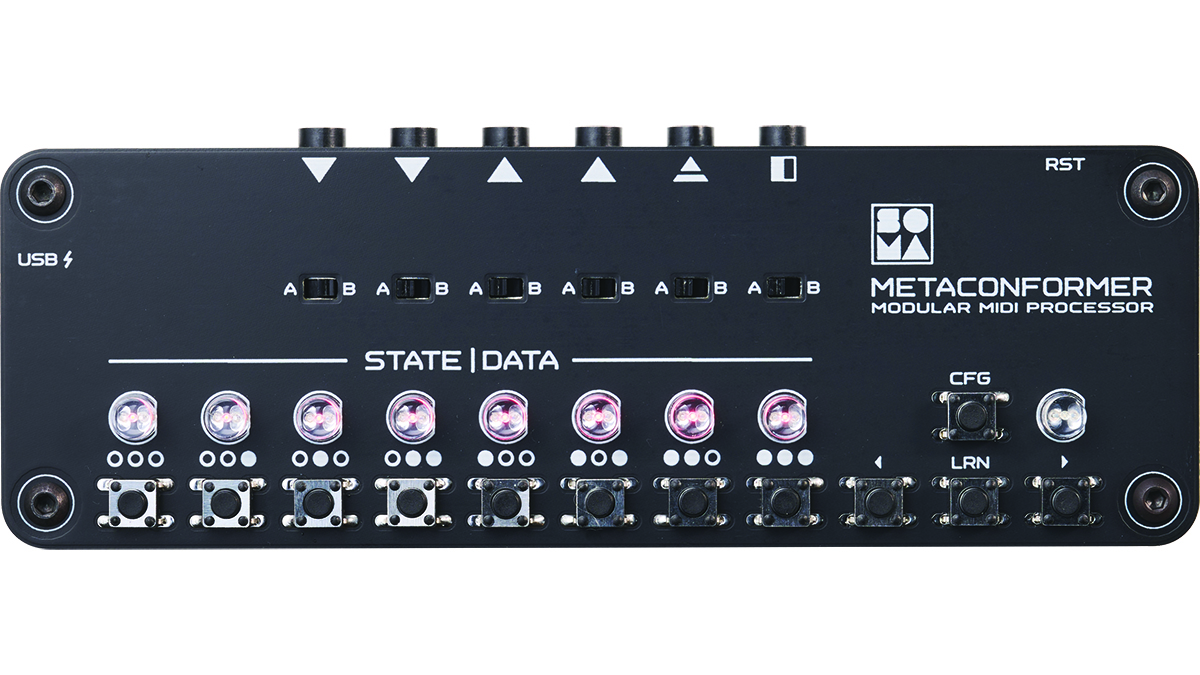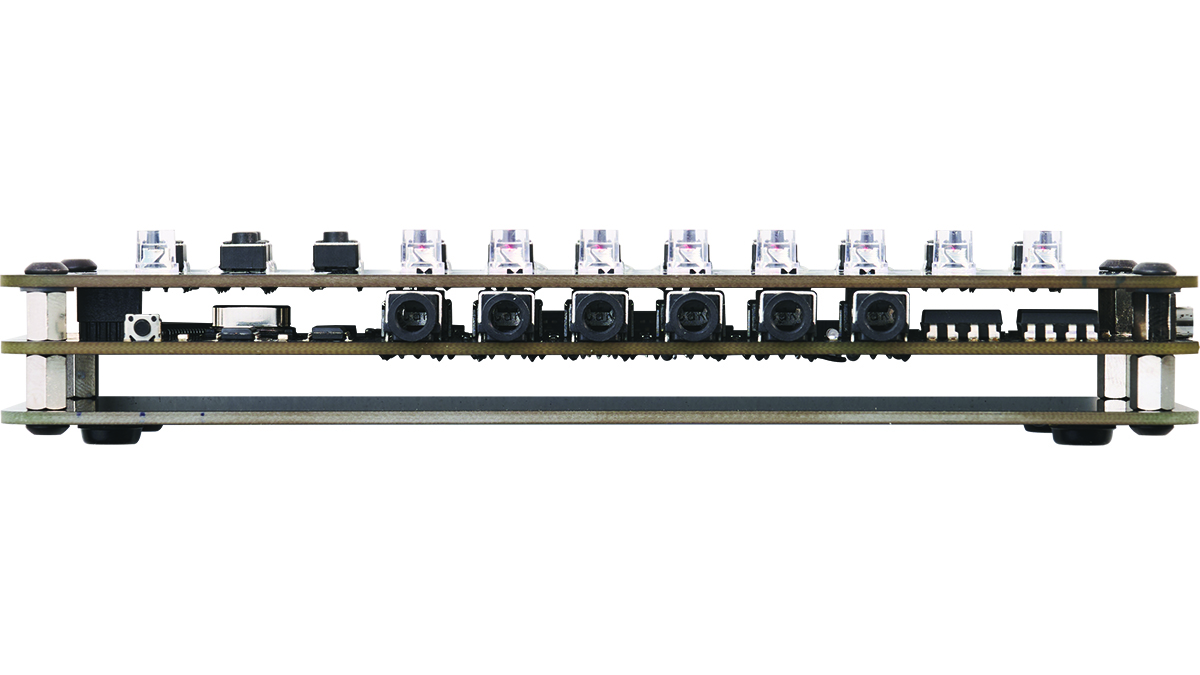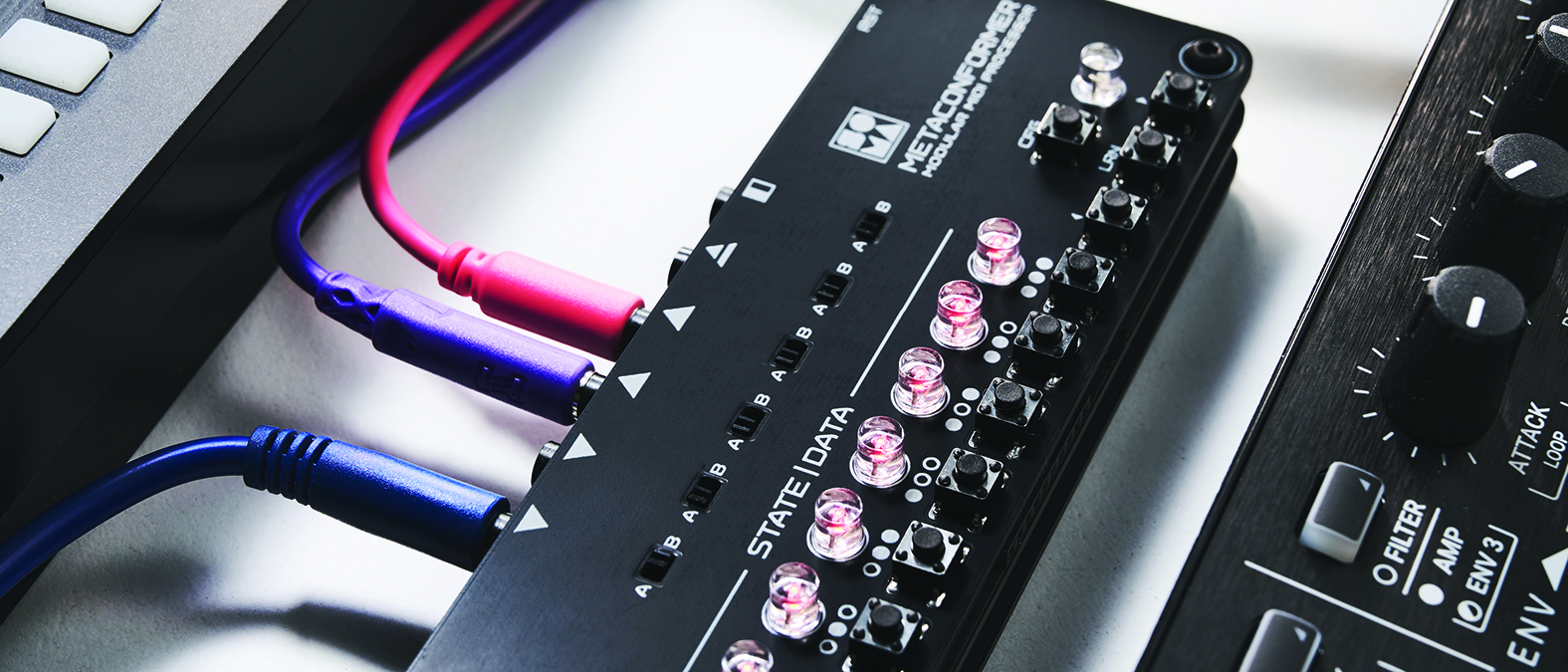MusicRadar Verdict
Despite being a slightly niche device with a few functional annoyances, Metaconformer remains unique and inspirational.
Pros
- +
Trio of MIDI routing modes open up a wealth of creative possibilities.
- +
Compact and convenient design.
- +
Can also send sync messages and act as a clock divider.
Cons
- -
No USB MIDI, despite the USB input for power.
- -
Necessary adapters and leads aren’t included in the box.
- -
User manual can be a little confusing.
MusicRadar's got your back
SOMA Labs Metaconformer: What is it?
SOMA is best known for esoteric instruments such as the Lyra-8 ‘organismic’ synth, Pulsar-23 drum machine and Terra, a microtonal synth built into a solid block of wood. Compared to these, the company’s new device Metaconformer is fairly conservative.
Metaconformer is a MIDI router and thru box. It has two MIDI inputs and four outputs. In typical SOMA style though, Metaconformer does more than simply route MIDI.

SOMA Labs Metaconformer: Performance and verdict
The device functions in three modes, each making use of eight MIDI ‘cells’. The first of these modes is a Splitter function. This lets the user set up keyboard splits in order to play two or more instruments from a single input. In this mode, each of Metaconformer’s cells is assigned a set range of MIDI notes and outputs them to a specific MIDI channel with one of a variety of transposition options applied. At a basic level, this lets the user play multitimbral parts from a single keyboard, as you might a stage piano or multitimbral synth. However, since the assigned ranges can overlap with differing transposition settings, it also opens plenty of interesting options for layering multiple instruments.
In typical SOMA style, Metaconformer does more than simply route MIDI
The Combiner mode can be similarly creative. This allows for multiple hardware instruments to be controlled like a single polysynth. This works by assigning each of Metaconformer’s cells as an individual voice, which then output to an assigned MIDI channel. Playing chords causes Metaconformer to route each new note to the next available cell, as a polysynth would with its available voices.
The final mode is named Translator. Here Metaconformer changes incoming MIDI notes into CC values. Each cell is assigned to output to its own MIDI channel and CC number. By connecting two MIDI controllers – or two Metaconformers – it’s possible to ‘play’ both the notes and parameters of a synth at once.

Usefully, aside from these creative uses, Metaconformer can also act as a simple MIDI thru box. The final output can double up as a sync out too, allowing Metaconformer to be used as a clock divider.
In this sense, Metaconformer can be a useful little studio utility, and its creative capabilities can be very inspiring. While each mode is superficially straightforward, you can happily lose hours to pondering the many ways it’s possible to make the device interact with your favourite hardware synths.
Want all the hottest music and gear news, reviews, deals, features and more, direct to your inbox? Sign up here.
That being said, there are a few functional annoyances. The biggest of these is the fact that the device requires a USB connection for power but doesn’t accept MIDI over USB. This means that you’ll need to make use of a USB port (or adapter/power bank) in order to use Metaconformer, but don’t have the convenience of also using that connection to route MIDI from a DAW. The unit also ships without any of the necessary MIDI/TRS adapters or a USB lead for power, which uses the increasingly less-common mini USB-B. All of which feels a little tight given its relatively high price compared to some other MIDI routers.
MusicRadar verdict: Despite being a slightly niche device with a few functional annoyances, Metaconformer remains unique and inspirational.
SOMA Labs Metaconformer: The web says
"It’s a powerful tool that blurs the line between utility and experimentalism, breathing new life into the machines you already have."
Orb Mag
SOMA Labs Metaconformer: Hands-on demos
SOMA Laboratory
SOMA Labs Metaconformer: Specifications
- KEY FEATURES: I/O: 2x MIDI in, 3x MIDI out, 1x hybrid MIDI/sync out (MIDI to TRS adapters required). USB for power only.
- CONTACT: SOMA Labs
I'm the Managing Editor of Music Technology at MusicRadar and former Editor-in-Chief of Future Music, Computer Music and Electronic Musician. I've been messing around with music tech in various forms for over two decades. I've also spent the last 10 years forgetting how to play guitar. Find me in the chillout room at raves complaining that it's past my bedtime.

